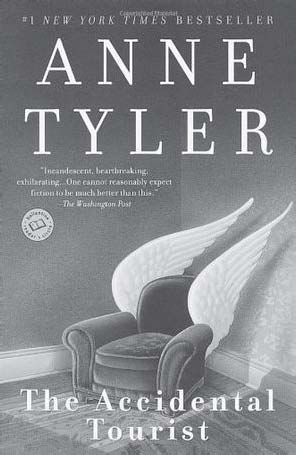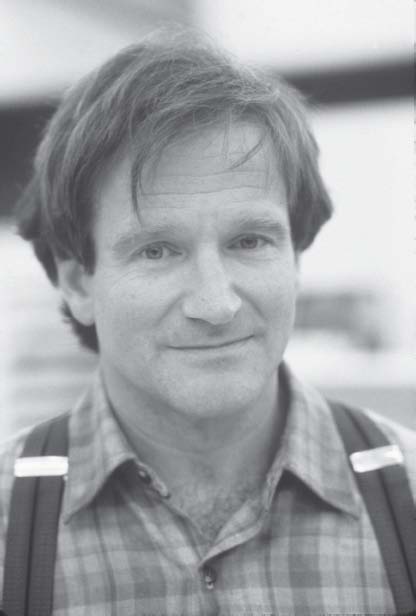




一
定语关系限定词主要就是whose(此外which也可以)。传统语法说whose是关系代词,但是它的结构用法与who等关系代词存在很大的区别:whose必须接名词,而who等不能接名词。下面我们按照 1.2小节
所说的三步骤来展示whose的用法特点。请看例句:
a. The professor is excellent.
b. I am taking his course.
1 指代:
his指代the professor:
【The professor】is excellent. I am taking【his】course.
2 替换:
把his换成whose:
【The professor】is excellent. I am taking【whose】course.
3 移位:
关系词移位: 由于whose作定语,限定名词course,所以whose course是作为一个整体的名词短语而被移到定语从句的句首:
【The professor】is excellent.【whose course】I am taking.
而不能只把whose移到句首,把course留在句末:
【The professor】is excellent.【whose】I am taking course. *
这就与his course不能拆分是一个道理。所以,我们看到,与who或which这样的关系代词移位不同,我们需要把“whose+名词”整体移到从句句首。
定语从句移位: 需要把整个定语从句whose course I am taking移到the professor后边:
【The professor】【whose course I am taking】is excellent.
于是最终得到一个带有定语从句的主从复合句:
c. The professor whose course I am taking is excellent.( 教我课的那位教授很好。 )
二
我们看到,上面例句中whose替换了his这个物主代词。不过,若不是物主代词限定一个名词,而是名词所有格限定一个名词,比如下面例句中的the professor's course:
I am taking the professor's course. He is excellent.
此时,用whose替换之后依然是:I am taking【whose course】→【whose course】I am taking。但是,主句He is excellent中没有被修饰的名词了,所以,我们还是需要把he还原成the professor,依旧写成上面c句,而不能直接写成:
d. He whose course I am taking is excellent. *
三
从以上的演示中,我们看到,whose与其他所有关系词不同的一点是: 我们不能单独把whose移位到从句的句首,而是要把“whose+名词”一起移位到从句开头。 这是因为whose本身只作定语,而“whose+名词”构成的名词短语,类似于who或which关系代词,因而可以在定语从句中充当主语、动词宾语以及介词宾语等。请看例句:
“whose+名词”充当从句的主语:
When I looked through the window, I saw a girl whose beauty took my breath away.( 当我朝窗外看时,猛然看见一个美女,其美貌让我惊讶不已。 )
这里whose beauty作从句的主语,whose指代a girl。原本两个简单句是:I saw a girl. Her beauty took my breath away.

再看下面这句话:
Anne Tyler's novel The Accidental Tourist features a character whose obsession with saving time and money is absurd, yet somehow plausible. ( 安妮·泰勒的小说《意外的旅客》中描写了这样一个人物:痴迷于省时间和省钱,其痴迷程度荒唐可笑,但又有点合理。 )
整个短语whose obsession with saving time and money作主语。我们看到,在whose后边接了一个长长的名词短语,该短语的中心词是obsession这个单数名词,所以谓语要用单数is。不要误认为主语是time and money,因而误用are。
2014年8月11日,美国著名喜剧明星罗宾·威廉斯(Robin Williams)自杀身亡,对此有媒体报道说:
Robin Williams, the Academy Award winner and comic supernova whose explosions of pop culture riffs and impressions dazzled audiences for decades and made him a gleamy-eyed laureate for the Information Age, died Monday in an apparent suicide. ( 罗宾·威廉姆斯周一自杀身亡。这位奥斯卡奖得主,喜剧巨匠,曾经多次引领流行文化,凭其精湛的表演征服观众数十年,他是我们这个信息时代中一位耀眼的巨星。 )

我们看到,在whose后边接了一个复杂的名词短语。整个短语whose explosions of pop culture riffs and impressions作主语,后接并列谓语dazzled...and made...。
“whose+名词”充当从句的动词宾语:
如上面(39)c句,whose course充当taking的宾语。再比如:
I apologized to the woman whose coffee I spilled. ( 我把那位女士的咖啡打翻了,我向她道了歉。 )
这里whose coffee作从句动词spilled的宾语,whose指代the woman。原本两个简单句是:I apologized to the woman. I spilled her coffee. 或者写成:I spilled the woman's coffee. I apologized to her.
“whose+名词”充当从句的介词宾语:
a. Atlas (in Greek mythology) was a kneeling man whose shoulder the world rested on.( 阿特拉斯是古希腊神话中的一个大力神,他跪在地上,肩上背负着地球。 )
这里whose shoulder作从句中介词on(或说短语动词rested on)的宾语,whose指代a kneeling man。原本两个简单句是:Atlas (in Greek mythology) was a kneeling man. The world rested on his shoulder.
我们也可以把这里的on前置到定语从句开头:
b. Atlas (in Greek mythology) was a kneeling man on whose shoulder the world rested.
四
在以上讨论的例句中,whose都是指代人,但它也可以指代事物。请看例句:
I live in a dormitory. Its residents come from many countries.
1 指代:
its指代a dormitory:
I live in【a dormitory】.【Its】residents come from many countries.
2 替换:
把its换成whose:
I live in【a dormitory】.【whose】residents come from many countries.
3 移位:
关系词移位: 由于whose residents已经在定语从句的句首,所以无须移位。 定语从句移位: 由于是修饰句末名词a dormitory,所以,我们直接把定语从句whose residents come from many countries放在a dormitory后边即可,而无须把定语从句移到句中。于是最终得到一个带有定语从句的主从复合句:
c. I live in a dormitory whose residents come from many countries. ( 我住的那个宿舍,室友来自各个不同国家。 )
我们看到,whose指代dormitory这一事物,而非人。再比如:
a. They lived in a house. Its roof was leaking.
这里its指代a house,合并成定语从句是:
b. They lived in a house whose roof was leaking. ( 他们住的那个屋子的房顶漏水。 )
所以,在定语从句中, 关系代词whose既可以指代人,也可以指代物。 前者相当于是who的所有格形式(a possessive form of who ),后者相当于是which的所有格形式(a possessive form of which )。这背后的原因可以从下面两个角度得到解释:
一方面,这是因为whose就是用来表达两个名词之间的所属关系的,这些名词可以是人或物,所以whose可以指人或物。另一方面, whose替换的物主代词包括his,her,their和its ,这里its是指物,their可以指人或物。从这点也可以看出,whose可以指代物。
另外,我们还注意到,关系词whose主要是相当于第三人称形容词性物主代词,这是因为第一人称或第二人称代词一般不会带有定语从句。
顺便提醒的是,在whose引导的特殊疑问句中,whose一般指代人,译成“谁的”。
五
whose与of which的替换:
知道了whose可以指代事物之后,下面我们来讨论存在的另外一种所有格结构,即用of which,基本结构是“名词+ of which ”,等于“ whose +名词”。请比较下面的例句:
a. They lived in a house whose roof was leaking.
b. They lived in a house, the roof of which was leaking.
能进行这样替换的理由很简单:因为事物名词可以用of所有格来替换物主代词its或their。所以,对应于b句的原本两个简单句是:
They lived in a house. The roof of the house was leaking.
然后用which替换the house,于是便得到the roof of which。值得提醒的是,在名词(如这里的roof)前面需要添加the,因为被修饰名词house是第二次被提到,house本身需要用the修饰,与其相关的roof自然也是需要用the来表示特指。于是出现the roof of which。相比之下,whose不能与the搭配使用,要说whose roof,而不是whose the roof*,因为whose与the都是中位限定词,彼此排斥(mutually exclusive)。
此外,我们还可以把the roof与of which进行位置互换,说成:
c. They lived in a house of which the roof was leaking.
所以,关于“名词+of which”这种结构的用法特点如下:
1.只能修饰事物,即此时的先行词是“指物”。
2.一般在名词前面有the限定,即“ the +名词+of which”。
3.一般有逗号分隔定语从句与先行词。如上面b句中a house与the roof之间有逗号。
4.可以换成“of which+the+名词”结构。
5.主要用于正式的书面语中。
综上所述,“whose+名词”与“名词+of which”结构之间的替代关系是:
1.whose+名词
2.=the+名词+of which
3.=of which+the+名词
于是,对于同一个句子,我们可以有三种不同的写法。
再次提醒大家注意,上述这种结构改换,只限于whose的先行词是事物,而不是人,因为of which不能指代人。所以,定语从句修饰人时,关系代词只能是whose,即使改为of whom也不行。比如一般不说:
The professor, the course of whom I am taking, is excellent.*
六
从以上例句我们看到,whose实际上取代了his/her/its/their这样的形容词性物主代词,而这些物主代词不能单独使用,必须限定某个名词,构成一个名词短语。同理,whose后边必定有名词。同时,whose前面也有名词,即被修饰的先行词。因此, whose的基本结构是“名词1+whose+名词2” , 而两个名词之间的关系是:名词1拥有名词2,通过whose来表达这种所属关系。
七
需要注意的问题:
对于whose的用法,初学者容易犯的错误是:忘记把his/her/its/their这样的物主代词替换成whose,而是保留使用his/her/its/their,采用who或which来引导定语从句,因而把句子写成:
The professor who I am taking his course is excellent.*
I live in a dormitory which its residents come from many countries.*
此外,除了whose之外,which也可以与名词连用,构成“which+名词”的结构,来引导一个定语从句,此时which也是作定语。关于这个用法,详见3.2.2小节。
定语关系代词(possessive relatives)

1.The teacher spoke to the boys. Their work was below standard.
2.The people were friendly. I rented their houses.
3.He is the professor. I am taking his grammar course.
4.That is the man. His son died in that air crash.
5.The man called the police. His car was stolen.
6.The man is famous. His picture is in the newspaper.
7.I have a neighbor. His dog barks all day long.
8.The girl is a good friend of mine. I borrowed her camera.
9.I spilled the woman's coffee. I apologized to her.
10.I visited the people's house on Thanksgiving Day. I wrote a thank-you note to them.
11.The man's wife had been admitted to the hospital. I spoke to him.
12.The woman's purse was stolen outside the supermarket. The police came to question her.
13.a. We have an antique table.
b. The top of it has jade inlay.
Combined: ___________________
14.a. We toured a 300-year-old house.
b. The exterior of the house consisted of logs cemented with clay.
Combined: ___________________
15.a. They own an original Picasso painting.
b. The value of the painting is more than a million dollars.
Combined: ___________________
16.a. I bought a magazine.
b. The title of the magazine is Contemporary Architectural Styles.
Combined: ___________________
17.a. My country is dependent upon its income from coffee.
b. The price of coffee varies according to fluctuations in the world market.
Combined: ___________________
18.a. The genetic engineers are engaged in significant experiments.
b. The results of the experiments will be published in the Journal of Science.
Combined: ___________________
19.I apologized to the woman who I spilled her coffee.
20.He teaches a class for students who their native language is not English.
21.I met a woman who her husband is a famous lawyer.
22.Let ABC be a triangle which sides are of unequal length.
23.I visited the people's house on Thanksgiving Day who I wrote a thank-you note to.
24.The woman's purse was stolen outside the supermarket who the police came to question.